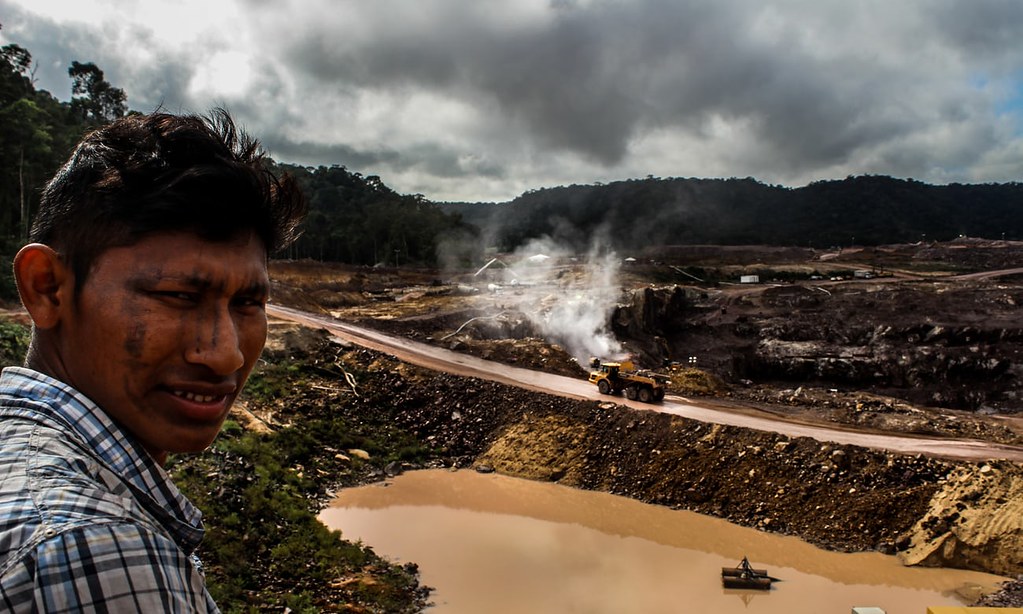Way Forward
Way Forward 1:
Water Justice and Water Sovereignty
It is critical to premise water justice concerns through the lens of indigeneity and recognize the colonial state water bureaucracy practices. Water justice can be understood as the interactive societal and academic endeavor to critically explore water knowledge production, allocation and governance and to combine struggles against water-based forms of material dispossession, cultural discrimination, political exclusion and ecological destruction, as rooted in particular context.
Water injustice goes beyond its physical or chemical forms. Therefore, there is a need to broaden our understanding about the harmful relationships between water and other sectors such as energy, manufacturing and agriculture which perpetuate water-based injustices, inequalities, and discrimination. Water justice scholars should seek innovative approaches to the challenges and not merely focus on the technical aspects of water issues.
The powerful state water bureaucracies have imposed colonial large-scale construction of dams, reservoirs and hydropower plants that are grounded on ideological western domination of nature resulting in destruction of the environment, displacing millions worldwide and perpetuating societal concerns.
While there is a stronger momentum for water sovereignty, we should also be able to recognize that some water resources are ‘allocated' by the state. Even if sovereignty is embodied in local communities, vulnerable groups, and corporations, it is merely a shift of powers amongst States, International Organizations and Institutions, and private actors, including local communities or vulnerable groups.
Climate Change
Frontline communities face immediate risk due to the impacts of climate change. Along with loss of land, the rise in sea levels impacts coastal communities’s drinking water resources which are at risk due to desalination. In the mountain regions, there is an increased risk from glacial lake outbursts floods (GOLFs) contributed by glacier melts due to rise in global temperatures. Likewise, downstream communities face risk from dam hazards, flooding and loss of arable land.
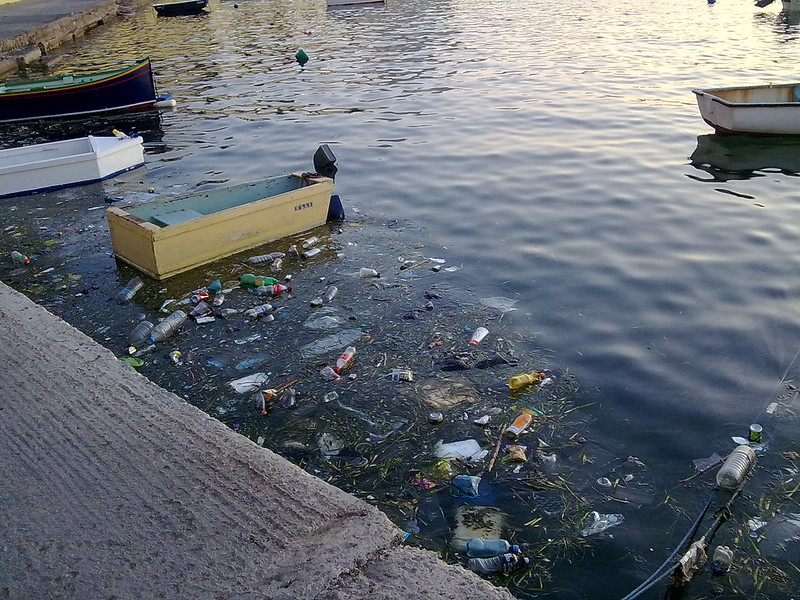
Organizations leading the way in Water Justice and Water Sovereignity
Transnational Institute (TNI)
The Transnational Institute (TNI) is an international research and advocacy institute committed to building a just, democratic and sustainable world.- Water Justice Project: The Water Justice project, run jointly by TNI and Corporate European Observatory, is engaged in the work of building viable alternatives to water privatisation, focusing on how to reform public water systems in order to make the human right to water a reality for everyone.
FAME (Alternative World Water Forum)
The objective of FAME is to create a concrete alternative to the sixth World Water Forum (WWF) which is organized by the World Water Council. This Council is a mouthpiece for transnational companies and the World Bank and they falsely claim to head the global governance of water.FAME will pursue and amplify the water movement by:
- creating and promoting an alternative vision of water management which is based on ecological and democratic values
- continuing research to find solutions to the worldwide water crisis
- making the water movement structure sustainable.
Movement Of People Affected By Dams (MAB)
MAB advocates for the human right to water and land, particularly for people displaced by dams and other mega-projects. The threat from increasing numbers of mega-dams has risen dramatically as the climate and energy crises have fueled the growth of so-called “clean and green” energy sources like hydro-powerWomen and Rivers Network
The Women and Rivers Network is committed to protecting free-flowing rivers and the lands, forests and territories they sustain, to ensuring women’s leadership in decision-making at all levels over freshwater resources, and to strengthening alliances and growing our movement – for the future of ourselves as women, our families and communities, our rivers and our planet.The event brings together close to women from more than 30 countries to celebrate the fundamental role women play in defending and stewarding freshwater resources, as well as to spur collective action to challenge the deep-rooted, gender inequities that women face in safeguarding rivers and river ecosystems
Focus on the Global South
Focus on the Global South is an activist think tank in Asia providing analysis and building alternatives for just social, economic and political change. They work on the following thematic areas: Political Economy & Development, Power and Democracy and People’s Alternatives.Water Protector Legal Collective
Water Protector Legal Collective provides legal support, advocacy, and knowledge sharing for Indigenous centered and guided environmental and climate justice movements.South Asia Network on Dams, Rivers and People (SANDRP)
SANDRP is an informal network working on issues related to rivers, communities and large scale water infrastructure like dams: their environmental and social impacts, their performance and issues related to governance of rivers and dams.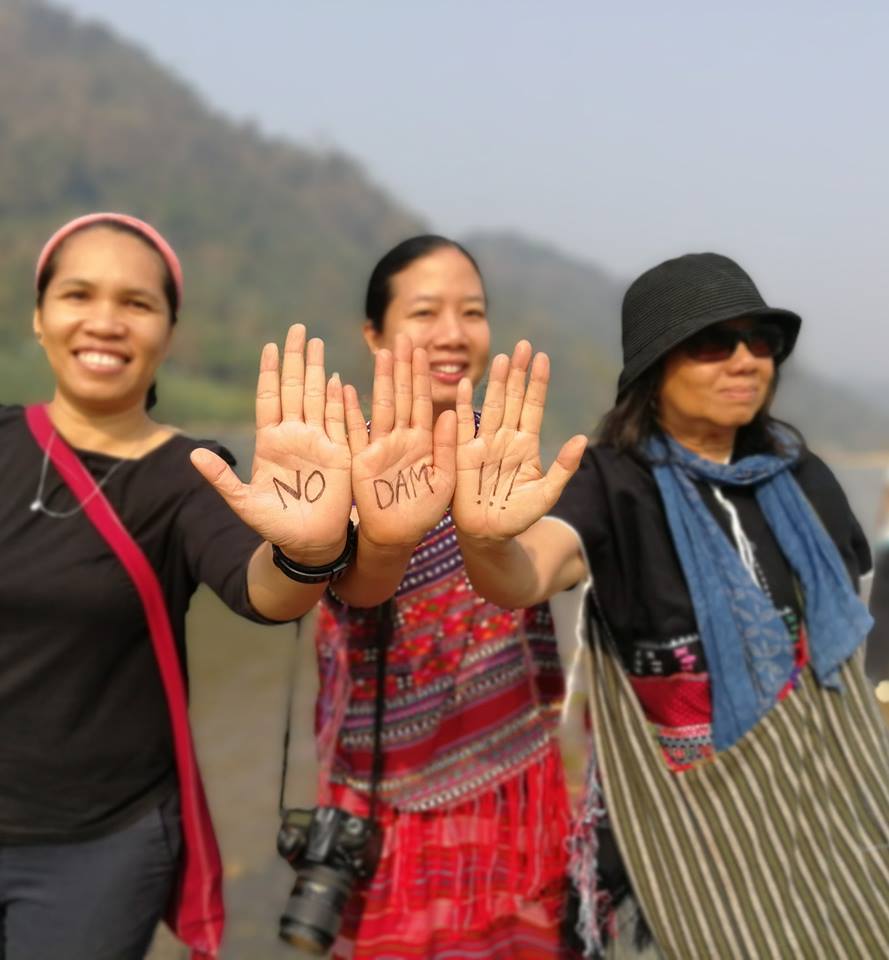
"March 14 2019 - International Rivers and partners at the Salween River 3" by International Rivers is licensed under CC BY-NC-SA 2.0
The Acequia Institute
The Acequia Institute (TAI) is a non-profit organization dedicated to research, education, and program extension to support the flourishing of the acequias, or communal irrigation canals, farming communities of the Upper Rio Grande watershed in New Mexico and Colorado.Water Alternatives - Journal
Water Alternatives is an interdisciplinary journal addressing the full range of issues that water raises in contemporary societies. Its ambition is to provide space for alternative and critical thinking on such issues.
"March 14 2019 - International Rivers and partners at the Salween River 2" by International Rivers is licensed under CC BY-NC-SA 2.0
International Rivers
International Rivers protects rivers and defends the rights of communities that depend on them. They work to stop destructive dams and promote water and energy solutions for a just and sustainable world.- Civil Society Guide to Healthy Rivers and Climate Resilience
- Beyond Dams: Options & Alternatives
- Factsheets
- Reports & Publications
- Dam Standards: A Rights based Approach
- Dams, Rivers and People Reports
Global Alliance for the Rights of Nature (GARN)
GARN is a network of organizations and individuals committed to the universal adoption and implementation of legal systems that recognize, respect and enforce “Rights of Nature”.GAIA Foundation
GAIA accompanies partners, communities and movements in Africa, South America, Asia and Europe by supporting communities and social movements on the front line of struggles to protect land, water and life, and to build regenerative alternatives to mining and extractivism.- Knowledge Is Power: Community Tools For Protecting Land, Water And Life
- In Defence of Life Video
- Beyond Extractivism Report
- Water Is Life: African Earth Jurisprudence Practitioners Share Their Stories In Webinar
- ‘Water Is Life’ Toolkit- New Online Platform To Support Water Defenders Resisting Mining

Narmada Bachao Andolan (Save the Narmada Movement)
Narmada Bachao Andolan (NBA) is an Indian social movement spearheaded by native tribes (adivasis), farmers, environmentalists and human rights activists against a number of large dam projects across river Narmada, which flows through the states of Gujarat, Madhya Pradesh and Maharashtra.- Global Nonviolent Action Database
- Sardar Sarovar Dam: Case Study
- DAM / AGE : a documentary about ARUNDHATI ROY & the Narmada Dam Project
- The Sardar Sarovar Dam Project: Selected Documents
- The River and The Rage: Dispossession and Resistance in the Narmada Valley, India
- Silenced Rivers: The Ecology and Politics of Large Dams
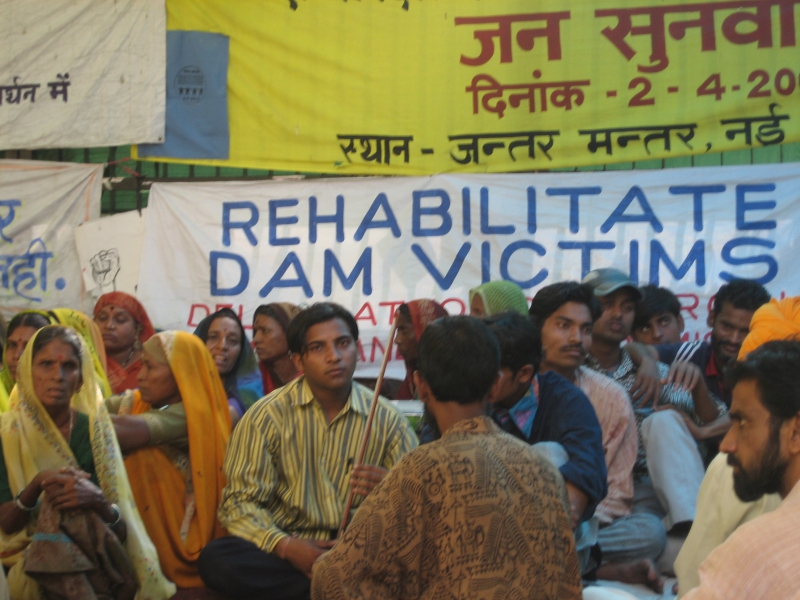 "The Narmada Bachao Andolan fights for rehabilitation for Dam Victims in Delhi, India" by International Rivers is licensed under CC BY-NC-SA 2.0
"The Narmada Bachao Andolan fights for rehabilitation for Dam Victims in Delhi, India" by International Rivers is licensed under CC BY-NC-SA 2.0European Rivers Network
Through a myriad of activities, including information campaigns and educational programmes, the network is involved in the protection of rivers and their ecosystems.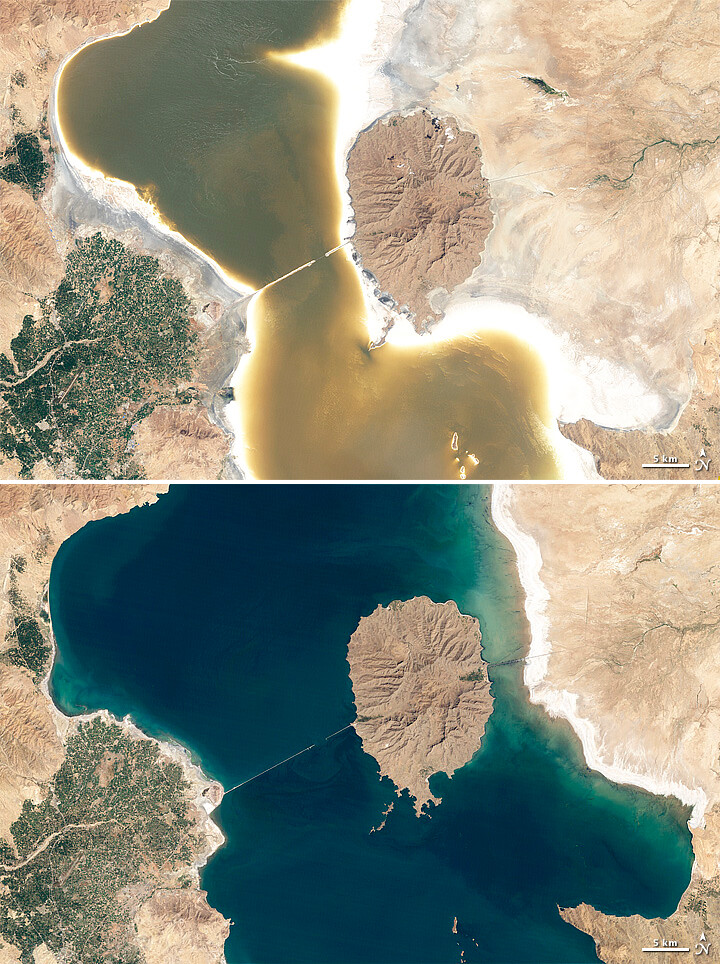
Additional Readings & Resources on Water Justice and Water Sovereignty:
Books, Articles, and Reports:
- The Multiple Challenges and Layers of Water Justice Struggles
- Water justice: key concepts, debates and research agendas
- The Shifting Geopolitics of Water in the Anthropocene
- Dams in the Amazon: Belo Monte and Brazil's Hydroelectric Development of the Xingu River Basin
- Environmental justice movements in globalising networks: a critical discussion on social resistance against large dams
- Contesting Hydropower Dams in the Eastern Himalaya: The Cultural Politics of Identity, Territory and Self-Governance Institutions in Sikkim, India
- Hydropower development and the meaning of place. Multi-ethnic hydropower struggles in Sikkim, India
- Water, Power and Identity: The Cultural Politics of Water in the Andes
- Center for International Environmental Law (CIEL)
- Heinrich Boll, Stopping Global Plastic Pollution
- The “Commons” Versus the “Commodity”: Alter-Globalization, Anti-Privatization and the Human Right to Water in the Global South
- Environmental Injustice in the Onondaga Lake Waterscape
- Water Sovereignty in the Age of Global Capitalism
- The Citizen’s Proposed National Water Law: Water democratization, sustainability and sovereignty in Mexico
- Local Control and Management of Our Water Commons
- Water Grabbing and Water Rights: Indigenous ‘Sovereignty’ v. State Sovereignty?
- The Moral Economy of Water: Equity and Antiquity in the Andean Commons
- Strategies of Successful Anti-Dam Movements: Evidence from Myanmar and Thailand
- Beyond Subalternity: Land, Community, and the State in Contemporary Jharkhand
- Indigenous water rights in law and regulation
- Rooted water collectives: Towards an analytical framework
- Equitable distribution of water through community participation in Assam, India
- Our right to water: Assessing progress five years after the United Nations recognition of the human rights to water and sanitation
- Payment for Ecosystem Services and the Water-Energy-Food Nexus: Securing Resource Flows for the Affluent?
Toolkits and Maps
Campaigns and Petitions
- Water and Extractivism: from North to South
- Forest-Land-Rivers and Tribal Identity (Himachal Pradesh, India)
- Against Dam-building in Teesta River,India and Release of Environmental Activists
- Against Integrated Kashang -Stage II & III Hydro Electric Project, India
Way Forward 2:
Democratization and Remunicipalisation of Water
The dominant water governance frameworks reproduce water colonialism which normalises settler occupation of land, the dispossession of Indigenous peoples of water, and legitimises settler exploitation of water. Likewise, scientific expertise of hydrology is valued over knowledge produced over centuries through Indigenous peoples’ water rights, responsibilities, and governance systems. Privatization of water for profit maximization, control of water resources through megadam hydraulic projects, and reinforcing concepts like watershed management, water quality control and sense of scarcity perpetuate water commodification.
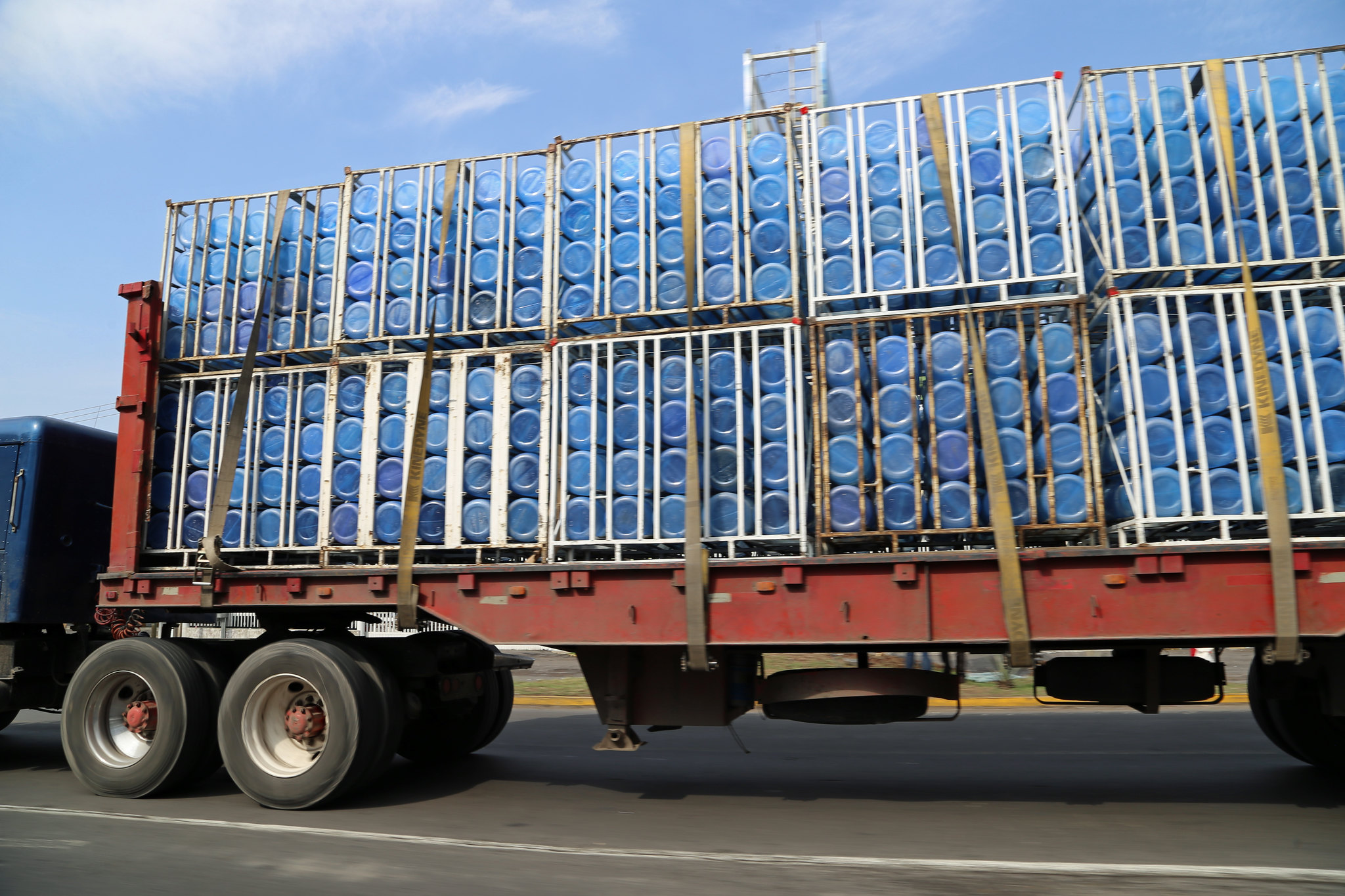
However in the last few decades, there have been local mobilizations against privatization efforts, mostly in the global north. Remunicipalisation is a local response by citizens and local authorities to systematically failing water privatisations and public private partnerships (PPPs). Multiple layers of water issues like pollution and depletion of watersheds have threatened Indigenous peoples’ rights to control water for the public good by other legal imperatives for water that do not respect its sustainable use or indigenous cultural autonomy and traditional systems.
Therefore, in order to resist control by corporations, Alternative World Water Forum (FAMA) successfully made its own space of diversity, welcoming the indigenous movements, quilombolas, fishermen, traditional communities, rural organisations, and socio-environmental movements from all over the world.
Unlike contemporary systems that solely frame water as a commodity, the indigenous cultural autonomy and traditional systems of commons-based management systems includes the right to democratic control over the management of water resources while presenting that the idea of water rights goes well beyond defined terms of access and use.

Organizations leading the way in Democratization and Remunicipalisation of Water:
Remunicipalisation - Transnational Institute (TNI)
There are many motivations behind (re)municipalisation initiatives: a goal to end private sector abuse or labour violations; a desire to regain control over the local economy and resources; a wish to provide people with affordable services; or an intention to implement ambitious climate strategies- [Book] Remunicipalisation: Putting Water Back into Public Hands
- [Interview transcript] Remunicipalisation
- [Website] Water Remunicipalisation Tracker
- [Book] Our Public Water Future
- [Review] Public-Public Partnership
- [Book] Reclaiming Public Water: Achievements, Struggles and Visions from Around the World
- [Report] Here to stay: Water remunicipalisation as a global trend
- [Report] Reclaiming Public Services: How cities and citizens are turning back privatisation
- [Report] The Tragedy of The Private, The Potential of The Public
WaterJustice.org: Resource Center for Alternatives to Privatization
Waterjustice.org is an open space to connect people from around the world dedicated to effective, democratic and equitable water solutions, including community activists, NGO campaigners, academic researchers, trade unionists and water utility managers. The success of the website will depend primarily on the active participation of these diverse groups.Hydropower Reform Coalition
Hydropower Reform Coalition is a diverse consortium of more than 160 national, regional, and local organizations with a combined membership of more than one million people.Amrta Institute for Water Literacy (Indonesia)
Amrta Institute for Water Literacy’s mission is to increase public awareness in water management, wise use, and sustainable water protection; find and implement efforts to overcome water scarcity for ecosystem sustainability and public welfare through water conservation; and fight for the public rights to get water with fair access.Public Service International
Public Services International is part of the original movement of Internationals: united groups of socialists, trade unionists and workers created to link the struggles of the working class around the world.- [Fact sheets] It’s Time to End Water Privatization
- [Article] PSI workshop in Indonesia on strengthening women and youth leadership
La Red VIDA (Inter-American Network for the Defense of the Right to Water)
La Red VIDA is a campaign in defense of water as a public good and a fundamental right. The network consists of consumer associations, women’s organizations, environmentalists, labour unions, human rights activists, religious groups, indigenous groups and social organizations.Additional Readings & Resources on Water Democratization:
- [Paper] Customary water laws (Refer Pg 1-9 for mapping customary laws)
- [Book] Alternatives to Privatization: Public Options for Essential Services in the Global South
- [Paper] Critical elements for local Indigenous water security in Canada: A narrative review
- [Report] Collectively controlled irrigation systems (See Case 6 & 7)
- [Report] The Future is Public: Towards Democratic Ownership of Public Services
- [Website] International Database of De-privatised Public Services
- [Interview Transcript] Public Community Partnerships in Peru and Uruguay
- [Article] What you need to know about Jakarta’s water privatization
- [Article] Jakarta’s Movement Against Water Privatization
- [Book] Here to Stay: Water Remunicipalisation as a Global Trend
- [Paper] Urbanization and Water Privatization in the South
- [Toolkit] Remunicipalization: a practical guide for communities and policy makers
- [Article] The Global Fight Over Our Drinking Water Is Just Getting Started
- [Article] Turning the tide of water privatization – the rise of the new municipal movement
- [Paper] The New Water Wars: Struggles for Remunicipalisation
- [Article] The future for democratic public water: resistance and alternatives - Alternative World Water Forum (FAMA) provides a counterpoint to the corporate forum #2
- [Chapter] Water wars: Anti-privatization struggles in the global south
- [Article] Brazilian and global water justice activists march to demand an end to the privatization of water
- [Report] Public Financing: Ensuring just and sustainable water infrastructure
- [Website] Blue Communities Project
Way Forward 3:
Implementation of Land Reform and Defense of Territories
Food production has tripled over the past half-century. The technological advances have accelerated mass productions leading to a disproportionate accumulation of wealth, power and injustices. The capitalist regime operates by maximizing land use rights to destroy the environment in order to accomplish profits over sustainability. The key driver is the underlying logic and operation of capital and the biophysical requirements of capital accumulation. In addition, the top two key drivers of water grabbing are changing patterns in global food markets and rise in agrofuels. Both these factors are linked to the food system which is fueling the new wave of water grabbing. The legal complexity surrounding water rights is used as a tool for water grabbing in many regions of the global south.
One of the most prominent forms of strategy to accumulate power and exploitation of land is through ‘land grab’, which allows for the capacity to decide how and for what purposes the land and water can be used now and in the future. In the past few years, the land rush has spiked due to the recognition that there is a limitation to the agricultural system. Another key dynamic that has played a role in this phenomenon is the impacts of climate change in agricultural yields which is adding an unprecedented pressure on the global food system. Therefore, as long as state systems exist, a critical tool to adopt is to promote policies to protect and support local farmers, or the peasant food web which feeds 70% of the world population.
Organizations leading the way:
Focus on the Global South
Focus on the global south’s works emphasize peoples’ alternatives to build and sustain better lives, societies, economies, and environments, while converging these activities towards re-articulating a paradigm that Focus believes is both timely and crucial: deglobalisation. The current work has three broad thematic areas: 1) Political economy of development, 2) Power and Democracy, 3) Peoples’ Alternatives, each of which are interrelated and interdependent.Global forest coalition
The Global Forest Coalition (GFC) is an international coalition of NGOs and Indigenous Peoples’ Organizations defending social justice and the rights of forest peoples in forest policies.
Yes To Life, No To Mining
YLNM was founded in 2014 by communities, organisations and networks from Africa, Europe, North and South America. Their network exists to support those communities who have decided to say NO to mining, in recognition of their right to say no, their right to Free Prior and Informed Consent and the unique challenges they face in defending land, water and life.- Supporting Movements: Yes to Life, No to Mining - Gaia Foundation
- Post-extractivism: Emblematic Cases From Finland To Colombia
- Webinar Building a post-extractive society in Southeast Asia
- Webinar Resist, Reclaim, Restore: Mining resistance and post-extractivism in Europe
- Webinar Post Extractivism in Australia
GAIA Foundation
Environmental Justice Organizations, Liabilities and Trade (EJOLT)
World Rainforest Movement
The World Rainforest Movement (WRM) is an international initiative that aims to contribute to struggles, reflections and political actions of forest-dependent peoples, indigenous, peasants and other communities in the global South. WRM is part of a global movement for social and environmental justice and respect for human and collective rights.Association for Women's Rights in Development (AWID)
AWID is a global, feminist, membership, movement-support organization working to achieve gender justice and women’s human rights worldwide.Global Witness
Global Witness’s mission understands that many of the world’s worst environmental and human rights abuses are driven by the exploitation of natural resources and corruption in the global political and economic system. Global Witness is campaigning to end this.Additional Resources:
- Land Matrix Database
- Popular Agrarian Reform: The New Call for Agrarian Reform in the 21st Century
- Sustainability in Europe: (Negative) impacts of EU policies and practices in the world
- Extractivism and Indigeneity in Boreal Canada, Coloniality and Sovereign Futures
